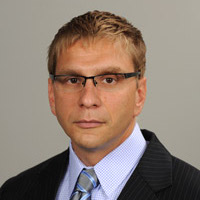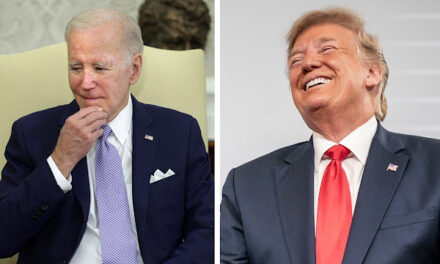LTP News Sharing:
Brendan McDermid/Pool Photo via AP
In the New York trial of Donald Trump related to his supposed fraudulent business loans, the court heard for the first time this week from one of the supposed “victims” of the fraud. Nicholas Haigh, who served as a Deutsche Bank risk management officer when Trump was applying for the loans answered questions for the court and it really didn’t sound like he did much for the prosecution’s case. There was plenty of banking industry technical lingo being thrown around, but the claim that Trump was somehow whitewashing his worth and fooling the banks isn’t holding up under scrutiny.
Sure, Trump’s team tried to fluff up his assets to get the best deal possible, but Haigh’s testimony demonstrates that Deutsche Bank isn’t stupid and they wouldn’t still be in business if they were. They examined Trump’s claims when applying for loans and even pushed back when something didn’t seem kosher. He also confirmed that all the transactions played out smoothly, just as they had expected. (Associated Press)
Donald Trump obtained hundreds of millions of dollars in loans using financial statements that a court has since deemed fraudulent, a retired bank official testified Wednesday at the former president’s New York civil fraud trial.
Trump’s “statements of financial condition” were key to his approval for a $125 million loan in 2011 for his golf resort in Doral, Florida, and a $107 million loan in 2012 for his Chicago hotel and condo skyscraper, former Deutsche Bank risk management officer Nicholas Haigh testified…
“I think the phrase we used might have been ‘sanity checks’ on the numbers,” he said.
Contrary to the prosecution’s claims that Donald Trump had somehow pulled a fast one on the banks, Haigh testified that they frequently gave “sizable haircuts” to the values that Trump’s attorneys assigned to his properties. That’s what Haigh referred to as “sanity checks.” When Trump claimed his total worth was $4.3 billion, Deutsche Bank trimmed it down to $2.5 billion. (That’s a rather hefty “trim,” isn’t it?) Of Trump’s financial standing, Haigh testified that the “representations of the assets and liabilities were broadly accurate.”
When estimating the value of undeveloped property that Trump was seeking a loan to develop, Deutsche Bank knocked 75% off of Trump’s claim in one case. They similarly slashed Trump’s claimed value of his golf courses in at least one instance. In the end, both parties agreed to the terms. The loans were made and they were repaid on schedule.
And that’s the major point of the trial, isn’t it? In order for Letitia James and her friends to claim that Donald Trump “committed years of fraud,” then someone must have been defrauded. There would have to have been “victims.” And Nicholas Haigh was a highly placed individual with one of the supposed victims. They made the amount of money they expected to make on the schedule they agreed to. They were “satisfied.”
I’m not sure what the court thought they were going to accomplish by bringing this guy in to testify. It sounds like he did nothing more than describe business as usual in Manhattan. Or at least it was “usual” by the standards of people who travel in Donald Trump’s financial circles.
Most of the questions being raised deal with the estimated values of various properties. And in the business world, a thing is worth precisely as much as someone is willing to pay for it. Trump played that game well enough to become quite wealthy and the banks happily went along for the ride. The only “fraud” in sight here is coming from the office of Letitia James.







